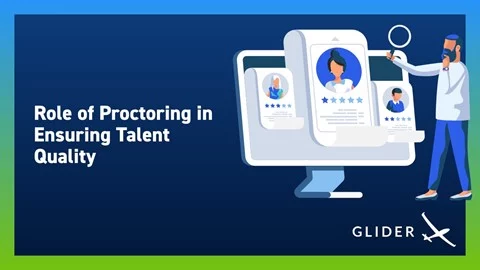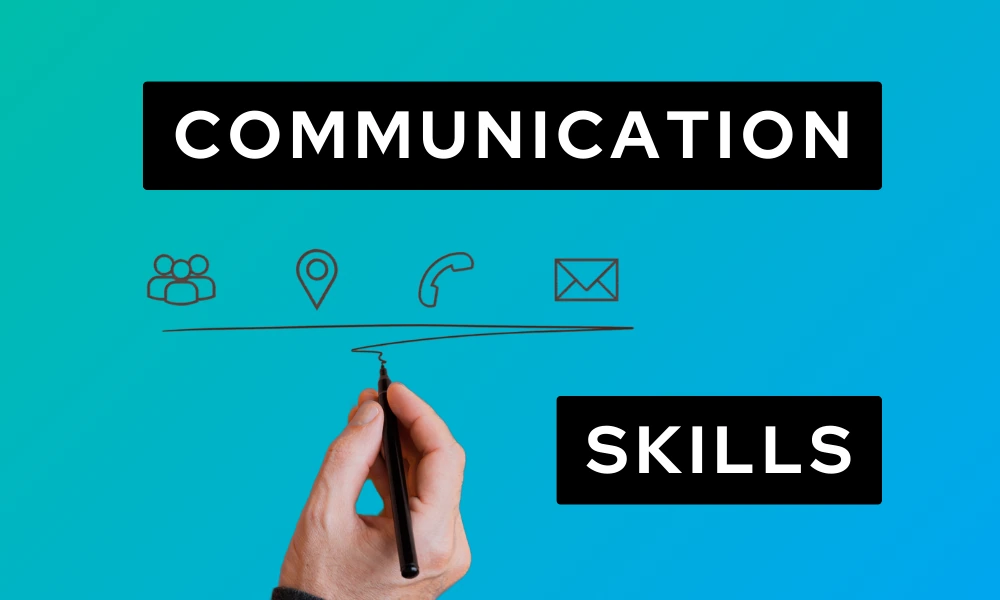There is no winning formula in finding the right talent quality. But recent advancements in recruitment software have dramatically eased the search for talent and the proctored exam meaning as well.
For example, James C.Johnson of Johnson Recruiting Group believes that hiring data can give us the key to win the talent war:
- How many qualified candidates do you attract to a role?
- How many candidates do you tend to interview before hiring each person?
- How long does your hiring process take, on average?
- What’s your interview acceptance rate?
Likewise, AI-based proctoring systems not only ensure fairness and impartiality but also improve data-driven hiring decisions.
Proctoring enhances recruitment capability. We have seen classical invigilators/test-security personnel during our examinations from school to university. As a test administration protocol, they verified our identification before letting us in and keep an eye on us for preventing any fraud or cheating.
AI-based proctoring is a paradigm shift in ensuring talent quality. The surge of online and remote hiring has resulted in rapid adoption of remote proctoring. They are used across multiple industries for entrance examinations, skills assessments and certifications, recruitment, talent hiring and others. But why proctoring is popular in candidate assessments? Let’s take a look:
- As per Walters People’s Survey, recruiters reported a whopping 67% hike in video interviews.
- PwC Survey also found that a majority of employers, that is 78% have accepted remote collaboration as the key to holding long-term strategy for employee engagement.
Proctoring is a remote-testing software that uses a live surveillance system. It monitors the candidate’s system, including the video and audio. The data is collected through e-assessment is then sent to recruiters for review purposes. Besides being GDPR compliant, most of the proctoring software carries a general set of rules and requirements like:
- Installation of proctoring software
- ID verification
- Close or disable all other running programs or windows
- Abide to follow test environment policies and procedures
- Access to mobile phone (in case of technical assistance needed)
- Any other instructions specified
While most of the online proctoring methods make use of various software tools and modules, they can be typically classified into three types:
- Live proctoring: Real-time proctoring method that requires human proctor to monitor candidates and track their behavior from start to finish.
- Recorded proctoring: Video recording of the candidate assessment. Allows candidates take exams anywhere, anytime. Also requires human intervention wherever necessary.
- Automated proctoring: The algorithm-powered system is enabled to detect fraud and mischievous activities committed by candidates though audio and video parameters. Requires no or very less human intervention.
How Does Proctoring Monitor Candidate Authentication?
Humans tend to take advantage of the system when given an opportunity. Cheating is a key issue in online/remote assessment. Absence of proctoring or invigilation is conducive to fraudulent activities like pressure to cheat, an opportunity to cheat and rationalization. Some researchers have found that cheating varies between 7 – 50% in online/remote candidate assessments.
Since there are no human invigilators or physical proctors present in the test set, there are high stakes for misconduct and malpractices by the job applicant. Behaviors like these not only question the integrity but also dilute talent in remote proctored test facilities. This is why candidate authentication is a major concern in remote hiring practices. But online recruitment tools are helping drive talent quality.
Simply said, candidate authentication refers to the classic adage, “To thine own self be true”. In other words, it refers to honesty in one’s actions and judgments. The modern definition of candidate authentication is about the goodness measure or fit of a candidate during his/her assessments.
Rightly pointed out by Nasscom, online proctoring is the ‘Need of the Hour.’ It helps you find the ideal candidates. As a step ahead, AI-based proctoring algorithms thoroughly make use of data-sets to capture genuineness, distinguish between fake and originality, and also flag deceptions and cheating behaviors. It will not be an exaggeration to say that no tool ensures candidate authentication like proctoring. From identification validity to behavioral checks, proctoring reviews security and audits any misconducts or malpractices at every moment of the assessment duration.
Candidate authentication matters not because employers lack trust in candidates, but it is necessary for foolproofing challenges like:
- Impersonations or foul play
- Ambiguities in photographs
- Signature disparities
- Deep fakes
- Manipulations in real-time video
- Any other false positives
Proctoring like a true best friend mitigates these fraudulent issues (and many more) and helps hiring managers cherry pick the right talent.
According to a Forbes article, remote proctoring is a reawakened need and it is here to stay. through checks and balances, proctoring companies can build confidence in remote testing and assessments.
Apart from this, we have curated a list of must-know benefits of proctoring just for you:
- Plug and play technology
- Larger candidate pool
- Bias-free
- Candidate identity authentication
- User-friendly
- Navigation control
- Auto invigilation
- Automatic grading
- Flag suspicious and inconsistent activities
- Plagiarism check
- Real-time analysis and reporting
- Reduced TAT
- Cost-effective
Glider AI Proctoring Ensures Candidate Authenticity
Glider AI’s advanced proctoring suite offers a world of solutions to digital hiring ecosystem. Used by leading employers, vendors and agencies, Glider’s assessments are well suited to full-time and contingent hiring, apart from campus recruitment and lateral hiring as well. Regardless of tech or non-tech industry, the tools are also well-suited for variety of roles like sales, technical, customer-support, entry-level jobs etc.
What makes Glider’s proctoring tools stand apart from its candidates is that they are simple, yet efficient in assessing candidates. Candidates are evaluated on various dimensions like core job skills, cognitive ability and behavioral aspects.
Powered by AI, the advanced proctoring tools confirm candidate’s authenticity with a 360-degree audit trail. It includes parameters like screen capture, webcam video and audio. Some of the unique proctoring features of Glider are:
- Automated Monitoring: A candidate’s movement and assessment area is tracked to ensure authentication and prevent any sort of cheating activities. It mainly uses a face detection mechanism and tracks candidate’s activity.
- Comprehensive Monitoring Report: True to its name, Glider presents a detailed monitoring and cheating probability report (of every candidate monitored) to the recruiters. The report gives a picture of cheating activities (if any) and code plagiarism (if found).
- Auto-flag Cheating: The auto-flagging algorithm checks misconduct and dishonest activities during candidate assessment. The data-driven activities like auto-flagging suspicious activities combined with audio and video analytics precisely capture the recording and apprehend deceitful submissions.
More details on how Glider boosts the recruitment process can be found here.
Many testimonials by trusted users of Glider’s assessment and proctoring platforms have listed the following benefits:
- Ease of Use
- Hiring efficiency
- Quality of hire
- Time to hire
- Reduced cost of hiring
- Identify fake candidates
- Increased interview to selection ratio
Now and the Future
Given the present situations and demands, the future of proctoring is projected to grow at a galactic scale. It’s true that authenticity cannot be automated, but it can be watched, judged and flagged. Among all factors that are prominent in assessing talent quality, authenticity takes the first position. A candidate’s professionalism is truly honored, only when authenticity is displayed and assessments provide a best opportunity to showcase it.
It must be understood that proctoring is never meant to police or preach a candidate’s privacy. But it does what it is best at – creating a conducive atmosphere for smooth completion of assessments and uphold authenticity like no other. The support of AI only makes it better.



